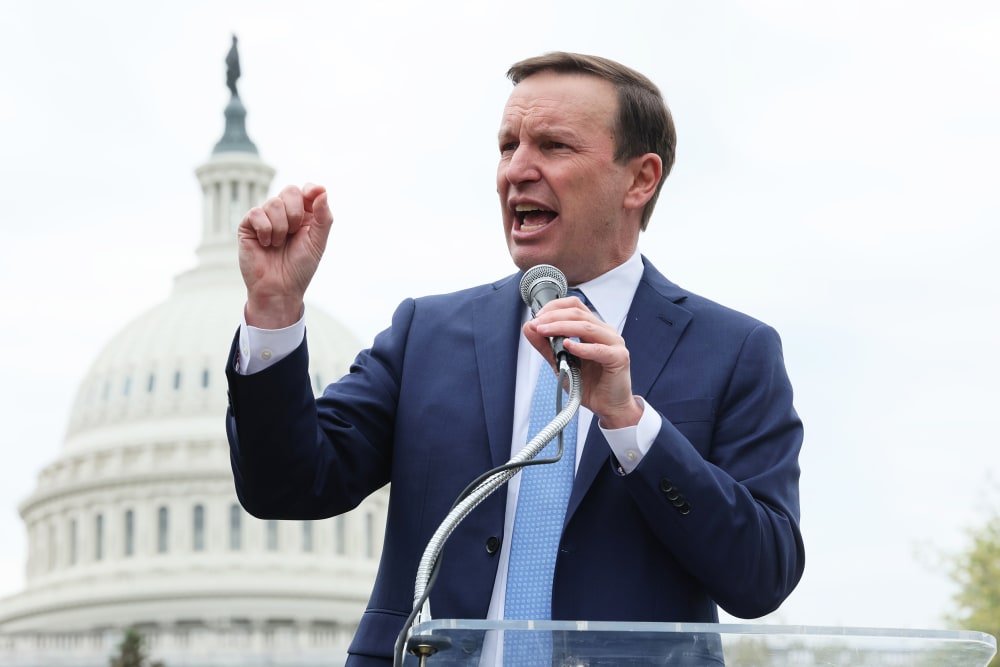With lawmakers officially poised to break the record for the longest shutdown on Wednesday, Democrats and Republicans are discussing a potential — if very fragile — deal to finally end the funding impasse.
But not every Democrat is so pleased with the contours of the agreement.
For weeks, a bipartisan group of rank-and-file senators has been talking about a deal, with conversations intensifying in recent days as some of the key pain points of the shutdown have come into focus, from missing paychecks and food benefits not going out to closed national parks and lengthy delays at airports.
The deal, multiple Senate aides told MSNBC, would go something like this: Lawmakers would advance a so-called “mini-bus” — funding the Department of Agriculture, the Department of Veterans Affairs, military construction and the legislative branch — alongside a short-term funding bill reopening the rest of the government.

In exchange for that bill passing, Democrats would get a separate vote on extending the enhanced subsidies for Obamacare. That vote, however, wouldn’t necessarily pass. In fact, it very well may not, based on Senate Majority Leader John Thune, R-S.D., insisting on a 60-vote threshold for passage in the Senate.
Even if that bill did pass, there is currently no promise from GOP leaders of the House holding a similar vote — or of President Donald Trump signing such a measure.
Still, just getting a vote in the Senate would give Democrats some political ammunition as they make the case to voters that Republicans are causing health care premiums to skyrocket.
That political concern was enough for Republicans on Tuesday to privately discuss holding a vote on a competing health care proposal, in order to give GOP lawmakers some messaging cover when they vote against the subsidy extension.
But a show-vote on health care and the passage of three appropriations bills is far from the goal Democrats set at the beginning of the shutdown. And plenty of liberal senators in the Democratic Caucus cast the tentative deal as a cave.
Sen. Bernie Sanders, I-Vt., who argued Democrats have up to this point been effective in showing the American people they are not going to stand for skyrocketing health care premiums, are making a “real, real, real mistake.”
“They’re winning the support of the American people, standing on those principles. And to cave now would be to betray those people,” Sanders told MSNBC.
Sen. Richard Blumenthal, D-Conn., likewise voiced frustration with the plan, arguing Democrats should be holding firm on demanding the health care tax credits.
A “promise” of a vote on Obamacare subsidies, Blumenthal told MSNBC, “is not good enough for me because I totally distrust this administration and Republican leadership.”
And Sen. Chris Murphy, D-Conn., told CNN that Democrats would be “suckers” to believe that Republicans, who oppose extending the subsidies now, would suddenly be supportive of them in a month.
Of course, any deal is delicate. And on top of some healthy dissent among Democrats, there is one person looming over a potential agreement: Trump.

Throughout the shutdown, Democrats have insisted that the president needs to engage in negotiations. But as the shutdown has dragged on — and as Trump has stood on the sidelines — lawmakers have tried to fill the leadership gap by reaching a deal among a small, select group of Democrats and Republicans.
Still, Trump’s chaotic leadership style could threaten a deal that he’s had no part of.
On Tuesday, after a federal judge ruled last week that the Trump administration had to issue at least partial payments for food benefits out of the Supplemental Nutrition Assistance Program contingency fund, Trump cast doubt on his administration actually following the law.
The president posted on Truth Social a new ultimatum on the future of the payments, saying they “will be given only when the Radical Left Democrats open up government, which they can easily do, and not before!”












